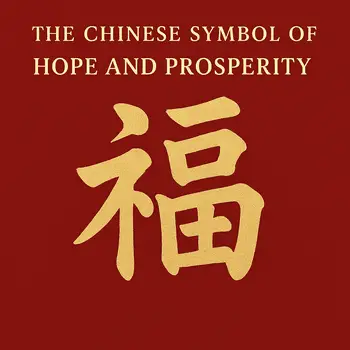
Understanding Chinese workplace culture is essential for Western professionals aiming to succeed in China.
Rooted in centuries of history, traditions, and values, the Chinese workplace operates on principles that may differ significantly from Western norms.

This guide explores the key aspects of Chinese workplace culture, offering actionable insights and practical advice to help you navigate and thrive in this unique environment.
Introduction to Chinese Workplace Culture
Chinese workplace culture emphasizes collectivism, harmony, and respect for hierarchy, contrasting with the individualism often seen in Western workplaces.
These cultural values influence communication styles, decision-making processes, and interpersonal relationships in the workplace.
The Importance of Guanxi (关系)
One of the most critical elements of Chinese workplace culture is guanxi, which refers to the network of relationships and connections that individuals cultivate.
Guanxi is not just about knowing people; it’s about building trust, mutual respect, and reciprocity.
How to Build Guanxi
- Show Respect and Humility: Acknowledge the experience and status of your Chinese colleagues.
- Practice Reciprocity: Engage in the exchange of favors to build trust.
- Be Patient: Developing guanxi takes time and consistent effort.
External Resource: For a deeper understanding of guanxi, check out this Harvard Business Review article on guanxi.
Hierarchy and Structure in the Workplace
Chinese workplaces often have a hierarchical structure, where respect for authority and adherence to the chain of command are paramount.
Understanding and respecting this hierarchy is crucial for effective collaboration.
Key Tips for Navigating Hierarchy
- Defer to Superiors: Avoid openly challenging decisions made by higher-ups.
- Use Formal Titles: Address colleagues with their titles and surnames.
- Communicate Subtly: Express disagreements indirectly to avoid causing loss of face (mianzi).
The Concept of Face (面子 Mianzi)
Mianzi, or face, is a cornerstone of Chinese culture. It represents a person’s reputation and social standing.
Maintaining face is essential for fostering positive relationships in the workplace.
How to Maintain and Give Face
- Praise Publicly, Criticize Privately: Avoid public criticism to prevent embarrassment.
- Acknowledge Contributions: Recognize the efforts of your colleagues to enhance their sense of face.
- Avoid Confrontation: Resolve conflicts discreetly.
External Resource: Learn more about the concept of face in this BBC article on Chinese culture.
Communication Styles in the Chinese Workplace
Chinese professionals often favor indirect communication to preserve harmony and avoid conflict.
This can be challenging for Westerners accustomed to direct communication.
Tips for Effective Communication
- Read Between the Lines: Pay attention to non-verbal cues and context.
- Use Polite Language: Avoid blunt or overly direct statements.
- Prefer Written Communication: In formal settings, written communication is often preferred for clarity.
Work Ethic and Attitude
The Chinese work ethic is characterized by diligence, dedication, and a focus on collective success.
Understanding these values is essential for integrating into the workplace.
Key Elements of Chinese Work Ethic
- Long Hours: Be prepared for extended working hours.
- Team Success: Prioritize the success of the team over individual achievements.
- Continuous Improvement: Show a willingness to learn and grow.
Business Etiquette in China
Proper business etiquette is crucial for building trust and demonstrating respect in the Chinese workplace.
Meetings and Negotiations
- Punctuality: Arrive on time as a sign of respect.
- Preparation: Bring all necessary documents and a clear agenda.
- Seating Arrangements: Follow traditional seating arrangements, with the most senior person seated first.
Gift-Giving
- Choose Appropriate Gifts: Avoid extravagant or culturally inappropriate gifts.
- Present Gifts Properly: Use both hands when offering a gift.
- Timing Matters: Offer gifts at the beginning or end of a meeting.
External Resource: For more on business etiquette, visit China Briefing’s guide to business culture.
Adapting to Chinese Workplace Norms
Adapting to Chinese workplace norms requires flexibility, cultural sensitivity, and a willingness to learn.
Learning the Language
- Basic Mandarin: Familiarize yourself with common workplace phrases.
- Industry-Specific Terms: Learn professional vocabulary relevant to your field.
Cultural Sensitivity
- Educate Yourself: Learn about Chinese history, traditions, and customs.
- Respect Local Practices: Observe dining etiquette, holiday celebrations, and other cultural norms.
External Resource: Use tools like Duolingo or HelloTalk to learn Mandarin.
Challenges and Evolving Trends
While traditional values like guanxi and hierarchy remain important, Chinese workplace culture is evolving due to globalization and the influence of younger generations.
For example:
- Younger professionals may value meritocracy over hierarchy.
- Multinational companies in China often blend Western and Chinese practices.
Understanding these trends can help you adapt more effectively.
Conclusion
Thriving in the Chinese workplace requires a deep understanding of its cultural values, from guanxi and hierarchy to communication styles and work ethic.
By respecting these norms and staying open to learning, Western professionals can build strong relationships and achieve success in China.
For further reading, explore:
By embracing the principles of Chinese workplace culture, you can foster productive and harmonious working relationships, paving the way for professional success in the Middle Kingdom.


